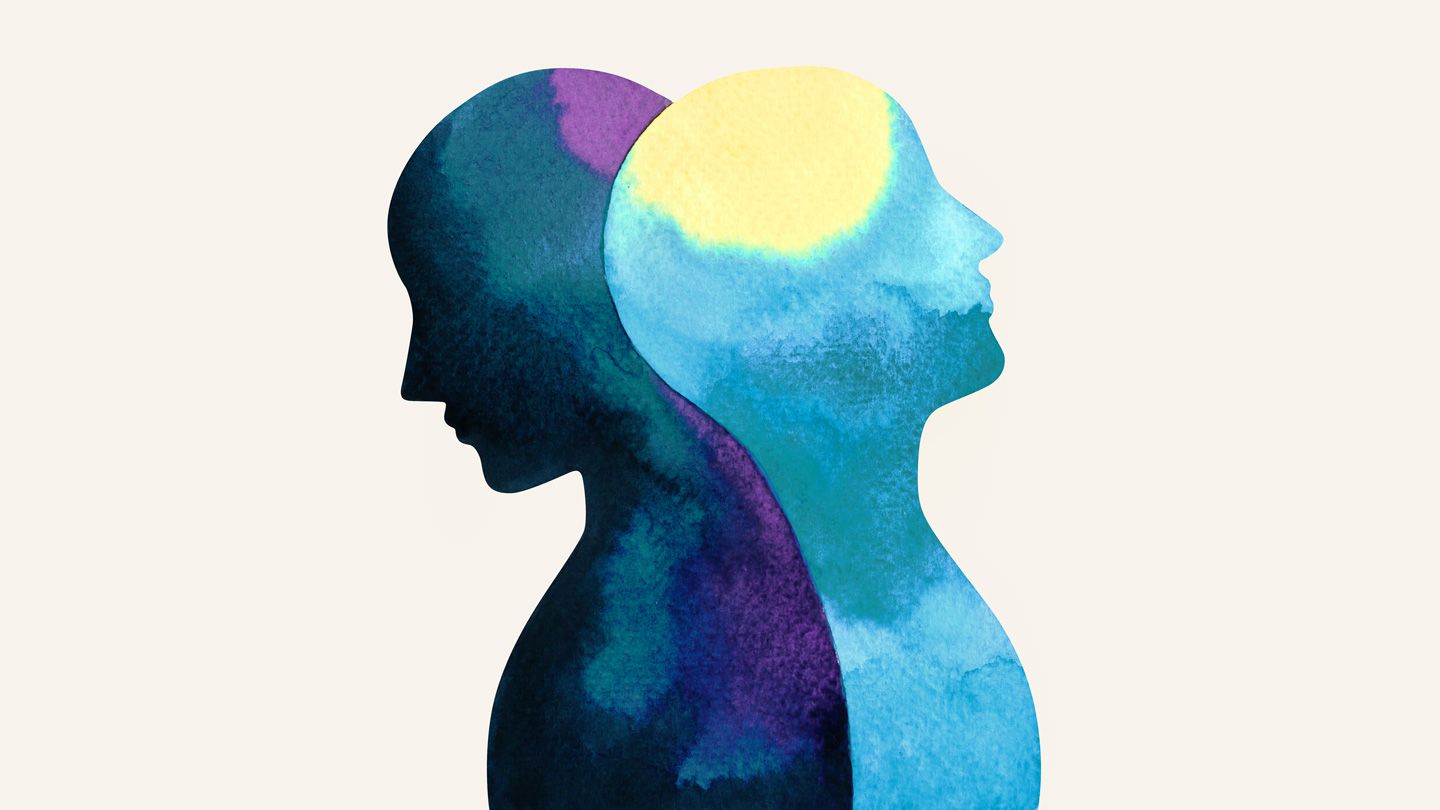Bipolar disorder is a mental illness that affects how a person thinks, feels, and behaves. It can be very difficult to live with bipolar disorder because the mood swings can be so extreme. In this blog post, we will discuss how a person with bipolar disorder thinks. We will also provide tips for managing bipolar disorder.
Contents
- 1 What Is Bipolar Disorder?
- 2 Bipolar Mania
- 3 Bipolar Depression
- 4 How A Person With Bipolar Disorder Thinks?
- 5 Does Bipolar Disorder Makes A Person Unique?
- 6 Negative Impacts Of Having Bipolar Disorder
- 7 Diagnosing The Bipolar Disorder
- 8 Ways Of Treating Bipolar Disorder
- 9 Find What Works Best For You
- 10 Conclusion
- 11 A Word From Therapy Mantra
What Is Bipolar Disorder?
 Bipolar disorder is a mental illness that causes a person to have extreme mood swings. These mood swings can cause a person to feel very high (mania) or very low (depression).
Bipolar disorder is a mental illness that causes a person to have extreme mood swings. These mood swings can cause a person to feel very high (mania) or very low (depression).
It affects the brain in many ways. Primarily, it can change the way a person thinks. Bipolar people often have problems with thinking clearly. They may have trouble concentrating, making decisions, or remembering things.
They may also have problems with logic and reasoning. This is called “thinking in extremes”.
People with bipolar disorder often see the world in black and white terms that are not realistic. For example, they may see things as good or bad, right or wrong, with no middle ground.
This can cause a lot of problems in their personal as well as social lives. It can be hard to have a job, make friends, or keep relationships when you see the world so differently from other people. But, it’s important to remember that everyone is different.
Bipolar Mania
Bipolar mania is described as a state of elevated mood, increased energy, and decreased need for sleep. This can lead to a person being very productive and feeling good about themselves. However, it can also lead to impulsive decisions and risky behavior.
Everything in the world has a good and bad side to it. Mania is no different. While it can lead to productivity and happiness, it can also lead to recklessness and poor judgment. It’s important to be mindful of the potential dangers associated with bipolar mania, but also not let them overshadow the positives.
One common misconception about people with bipolar disorder is that they are all manic and can’t think straight. This isn’t always the case! Some people may only experience mania
Bipolar Depression
Bipolar depression is described as a state of low mood, fatigue, and lack of interest in activities that were formerly enjoyed. This state can occur in people with bipolar disorder and is often a precursor to an episode of mania or hypomania.
People with bipolar depression may have feelings of worthlessness, guilt, and helplessness. They may also experience problems concentrating, slowed thinking, indecisiveness, and decreased energy. Thoughts of death or suicide are very common during the bipolar depression.
How A Person With Bipolar Disorder Thinks?
A person with bipolar disorder may have a hard time thinking logically and clearly. Their thoughts may be scattered and jump from one topic to another. They may also have a hard time concentrating on anything for very long. This can make it difficult to do things like solve problems or think through a plan.
However, people during this situation may also feel more intensely than other people. They may feel more creative and have more energy. This can make them good at things like coming up with new ideas or being very active.
It’s important to remember that bipolar disorder affects different people in different ways. So, not everyone will experience the same symptoms or think in the same way. For example, some people might be more creative and energetic, while others might struggle to concentrate at all.
This is just a snapshot of how a person with bipolar disorder may think. As you can see, it’s a bit different than the way most people think! There are some misconceptions about how people with bipolar disorder think.
What do you think how a person with bipolar disorder thinks really?
Does Bipolar Disorder Makes A Person Unique?
 It might look insensitive to say that bipolar disorder makes a person unique, but it is true. Each individual with this illness has their own way of thinking and coping with the challenges they face.
It might look insensitive to say that bipolar disorder makes a person unique, but it is true. Each individual with this illness has their own way of thinking and coping with the challenges they face.
Some people with bipolar disorder might be very creative and have a lot of energy. They may be able to stay up for days on end, working on new projects or ideas. Others may struggle to get out of bed, feeling like they are stuck in a dark hole with no way out.
Declaring anything wrong or right is impossible, as what works for one person might not work for another. It is important to remember that everyone with bipolar disorder is different and should be treated as such.
The benefits of having bipolar disorder, are listed below:
-Bipolar individuals are more likely to be creative and have higher IQs.
-They may also be more intuitive and insightful than the average person.
-Many famous people, such as Vincent van Gogh and Winston Churchill, were bipolar.
-Bipolar Disorder Makes A Person Unique
-Each individual has their own way of thinking
-People with bipolar often are very good at thinking outside the box.
Negative Impacts Of Having Bipolar Disorder
 Bipolar disorder also has its share of negative impacts on a person’s life. One of the most common is difficulty concentrating. This can lead to poor performance in school or at work.
Bipolar disorder also has its share of negative impacts on a person’s life. One of the most common is difficulty concentrating. This can lead to poor performance in school or at work.
A person with bipolar disorder may also have a hard time maintaining relationships due to their mood swings and erratic behavior.
Common Negative Impacts
-Difficulty concentrating and making decisions.
-Feel very down or “empty” for long periods of time.
-Thoughts of suicide or death.
-Inability to experience pleasure from activities that were once enjoyed.
Negative Impacts On Daily Life
-Feeling like there is no hope for the future.
-Frequent and intense mood swings.
-Racing thoughts that are hard to control.
-Engaging in risky behavior, such as drug or alcohol abuse.
These are the impacts that a person with bipolar disorder can have. It largely changes how that person functions in day-to-day life. It can be very hard to cope with these changes. If you or someone you know is struggling with bipolar disorder, please seek help.
Diagnosing The Bipolar Disorder
For diagnosing this disorder, mental health professionals use the Diagnostic and Statistical Manual of Mental Disorders (DSM). The DSM is a guidebook that lists all the recognized mental disorders.
To be diagnosed with this, consider it with professional help. To give treatment, it is important to understand the disease completely. About its benefits, negative impacts so that the diagnosis will be more effective.
Children with bipolar disorder will have different symptoms than adults. They may become very irritable or show signs of severe problems at school. Some children may also try to harm themselves.
To get a proper diagnosis and treatment. It is important to consult a mental health professional who understands this disease well.
Diagnosis can be a long and difficult process. It’s often hard to know what is wrong because the symptoms of bipolar disorder can be so varied. Mania may make it seem like you are just having a good day, while depression may make you feel like there is no hope left.
Ways Of Treating Bipolar Disorder
 There are numerous ways of treating bipolar disorder. The most common treatment is medication. However, there are many different types of medications that can be prescribed.
There are numerous ways of treating bipolar disorder. The most common treatment is medication. However, there are many different types of medications that can be prescribed.
There are also a number of therapies that can be helpful in treating bipolar disorder. Therapies play an integral role as it can help to identify triggers and manage symptoms.
Types Of Treatment
There are three main types of bipolar disorder treatment;
- Medication,
- Therapy,
- Self-care.
Medication is the most common type of treatment and usually consists of mood stabilizers and antipsychotics.
Therapy can be done in individual or group settings and focuses on helping the person understand their condition and learn coping skills. It includes cognitive-behavioral therapy, psycho-education, family therapy, and interpersonal and social rhythm therapy.
Self-care includes activities includes things like getting enough sleep, eating a healthy diet, and exercising. It can also include things like stress management and problem-solving skills.
Resources To Seek Help
If anyone is feeling suicidal, please go to the emergency room or call a suicide hotline in your area.
There are many resources available to those suffering from bipolar disorder. Some of these include:
– Mental health professionals (psychiatrists, therapists, psychologists),
– Medication prescribed by a doctor to help regulate moods,
– Self-help groups or support groups,
– Family and friends who are supportive and understanding,
– Online resources and support communities,
Remember that you are not alone in this. There are many people who want to help and support you. Seek out the resources that work best for you and start getting better today.
Find What Works Best For You
 There are many different types of bipolar disorder, so you may need to try a few different treatments before you find the one that works best for you.
There are many different types of bipolar disorder, so you may need to try a few different treatments before you find the one that works best for you.
Some people with disorder respond well to medication, while others do better with therapy or a combination of both.
It’s important to find the type of treatment that works best for you. If one type of treatment doesn’t seem to be working. Then, you must talk to your doctor about trying another type.
Also, keep in mind that what works for one person with bipolar disorder may not work for another. You may need to experiment a little to find what works best for you.
“Never be afraid to ask doctor for help. Bipolar disorder can be a difficult condition to live with.”
Conclusion
To put it simply, there are things that require attention. The person with bipolar is capable of deep and rational thinking. But they are also more likely to be swayed by their emotions.
There is a big emphasis on intuition and creativity in people with bipolar disorder, which can lead to some very insightful ideas. More often it can also make the individual more impulsive. It’s important for loved ones and caregivers to help the person. In order to stay on track by providing structure and stability.
People with this disorder are not just their illness. They are complex, fascinating individuals who have a lot to offer the world. With support, they can learn to manage their condition and live happy, productive lives.
A Word From Therapy Mantra
Your mental health — Your psychological, emotional, and social well-being — has an impact on every aspect of your life. Positive mental health essentially allows you to effectively deal with life’s everyday challenges.
At TherapyMantra, we have a team of therapists who provide affordable online therapy to assist you with issues such as depression, anxiety, stress, workplace Issues, addiction, relationship, OCD, LGBTQ, and PTSD. You can book a free therapy or download our free Android or iOS app.


